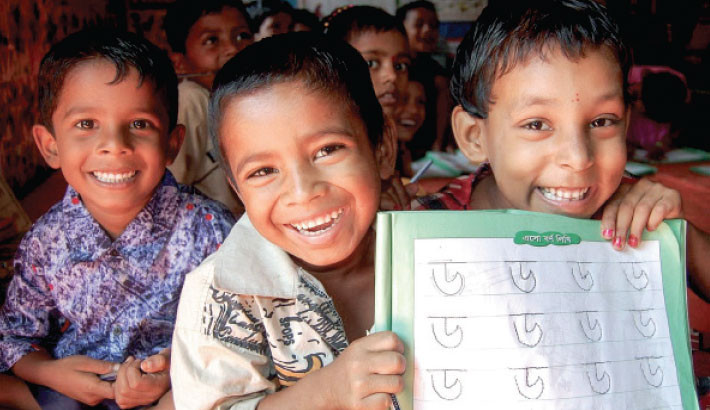Education for Street and Underprivileged Children
Sharif Obaidullah, Founder of Noboddom Foundation
Published: 06 Oct 2024

As we navigate the promising waters of New Bangladesh, one pressing issue remains alarmingly neglected: The education of street children and those from underprivileged backgrounds. With our nation's rapid development and aspirations of becoming a middle-income country, it is imperative that we ensure no child is left behind. The future of Bangladesh rests on the shoulders of its youth, and it is our collective responsibility to provide them with the educational opportunities they deserve.
Current Landscape: According to recent statistics, millions of children in Bangladesh are living on the streets or in poverty-stricken households, deprived of basic educational resources. The United Nations estimates that over 1.5 million children roam the streets of Dhaka alone, many of whom work to support their families. These children are often trapped in a vicious cycle of poverty, exploitation, and limited access to education. Without intervention, their potential remains untapped, and the dream of a prosperous New Bangladesh will remain just that—a dream.
Importance of Education: Education is not merely a tool for individual advancement; it is the bedrock of societal progress. An educated populace contributes to economic growth, social cohesion, and political stability. For street children and those from marginalised communities, education can be transformative, providing them with skills and opportunities to break free from the shackles of poverty. It empowers them to dream of a brighter future, where they are not defined by their circumstances but by their aspirations and capabilities.
Barriers to Education: Despite the clear benefits, numerous barriers prevent street and underprivileged children from accessing education. These include:
Financial constraints: Many families prioritise immediate survival over long-term educational investments. School fees, uniforms, and supplies can be prohibitively expensive.
Social stigma: Children from impoverished backgrounds often face discrimination, making it difficult for them to integrate into mainstream educational settings.
Lack of infrastructure: Many areas lack adequate schools, trained teachers, and educational materials, especially in rural or impoverished urban areas.
Child labour: A significant number of children are forced into labour to support their families, leaving little time or energy for schooling.
Call to Action: To address these challenges, a multifaceted approach is essential:
Government commitment: The government must prioritise education in its budget, ensuring that funds are allocated specifically for programmes targeting street and underprivileged children. This includes providing free education, uniforms, and learning materials.
Community involvement: Local communities should be engaged in creating solutions tailored to their unique challenges. Grassroots organisations and NGOs can play a pivotal role in identifying needs and implementing effective educational programmes.
Flexible learning models: Traditional schooling may not be feasible for all children, especially those working during the day. Implementing alternative education models, such as evening classes and mobile schools, can help reach those who are otherwise excluded.
Awareness campaigns: It is vital to change societal attitudes toward education for all children, regardless of their background. Awareness campaigns can help destigmatise the education of street children and highlight their potential.
Partnerships with Private Sector: Collaboration with private enterprises can foster innovation in educational delivery. Companies can adopt schools or fund scholarships, while also providing vocational training to equip children with marketable skills.
As we stand on the brink of a new era for Bangladesh, we must remember that true progress is measured not by GDP alone but by the well-being and potential of our children. Investing in the education of street and underprivileged children is not merely a moral obligation; it is a crucial step toward realising the vision of a prosperous, equitable, and thriving New Bangladesh.
Let us commit to ensuring that every child—regardless of their circumstances—has access to quality education. By doing so, we will not only transform individual lives but also lay the foundation for a brighter future for our entire nation. It is time for us to act, to advocate, and to make a difference. The children of Bangladesh are counting on us.

